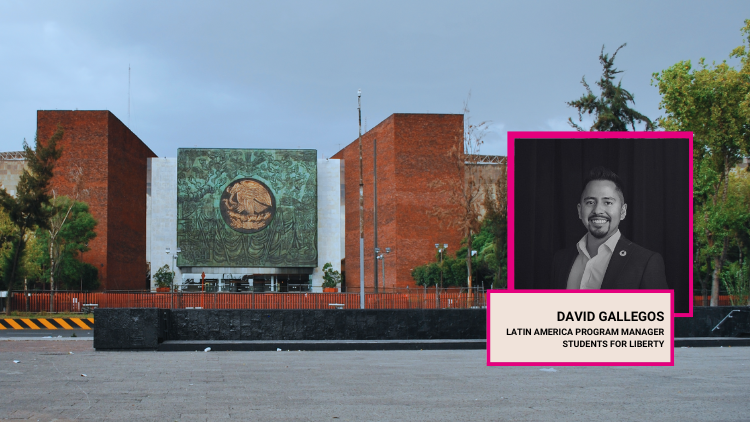Rule of Law
Concentration of Power in Mexico: Reform with Destructive Potential

The recent legislative modifications approved by the Mexican Chamber of Deputies, with the support of the parties Morena, Labor Party, and the Green Party of Mexico, mark a significant change in the dynamics of the judicial and executive power of the country. Specifically, the reforms to the Amparo Law and the inclusion of a new article in the Amnesty Law have triggered an intense debate about the balance of powers and the protection of citizens' rights in the Mexican context. This analysis explores the implications of these reforms and raises questions about whether these measures reinforce the unilateral power of the president and the regime to the detriment of individual rights.
The Amparo Law, which historically has served as a mechanism to protect fundamental rights in Mexico, has been subject to reforms that eliminate judges' authority to suspend the application of general norms. With the approval of the reforms to articles 129 and 148 of the Amparo Law, regulatory of articles 103 and 107 of the Political Constitution of the United Mexican States, the judges' ability to issue suspensions with general effects is limited. This measure is justified, according to the Mexican government, as a correction of anomalies and abuses by judges, who have sometimes exceeded their functions by stopping the application of laws and regulations[1].
However, this change can be seen as a significant setback in the defense of human rights. The progressiveness of human rights, a consolidated jurisprudence since 2011[2], is threatened by restricting judges' ability to intervene when a general norm is potentially unconstitutional. The reform puts citizens at risk, who, during the litigation process, may continue to be victims of violations of their rights without the possibility of effective suspension. This scenario creates a more elitist justice system, where only those with sufficient financial resources will be able to litigate and defend their rights, leaving the most vulnerable unprotected.
The Chamber of Deputies approved the addition of an article 9 to the Amnesty Law, which grants the Federal Executive Branch the power to grant amnesties directly. This measure gives the president considerable discretionary power to extinguish imposed criminal actions, which has been interpreted as a strengthening of the president's unilateral power. In the context of the recent presidential elections, this reform could have been used as a political tool to pardon certain individuals strategically.
The discretionary use of amnesty raises serious concerns about transparency and justice. Without clear regulation and control, this authority could be used to protect political allies, military personnel, or corrupt officials, undermining the rule of law and fostering impunity. The possibility that this measure will be used to grant amnesty to government members involved in illicit enrichment, embezzlement of funds, or human rights abuses, such as the Ayotzinapa case, is a scenario that cannot be ruled out.
The fundamental question here is: to what extent is it healthy for a democracy to grant so much power to the State and, in particular, to the president?
To understand the impact of these reforms, it is crucial to place them in the broader context of Mexican politics. The concentration of power in the hands of the executive and the limitation of judicial independence are characteristics that have marked authoritarian regimes in the region. The "imperial presidency," a term that evokes the excesses of executive power[3], seems to resonate again in the case of Mexico with these reforms.
The philosopher Blaise Pascal suggested addressing these issues by considering the worst possible scenario[4]. In this case, the worst scenario would be one where these reforms lead to an abusive use of presidential power, eroding individual freedoms and human rights. Latin America's history is full of examples where the concentration of power in the executive has resulted in authoritarian and abusive regimes, with serious consequences for the population.
The reforms to the Amparo Law and the Amnesty Law in Mexico represent a worrying change in the balance of powers and the protection of human rights. By limiting judges' ability to suspend general norms and granting the president the discretionary power to grant amnesties, these measures consolidate a stronger and potentially abusive executive power. This change not only affects Mexico but resonates throughout Latin America, where the defense of democracy and human rights remains a constant challenge.
It is essential that civil society, human rights organizations, and the international community remain vigilant in the face of these developments. The discussion about the balance between state power and individual rights is crucial to ensure that democratic achievements are not snatched away in the name of efficiency or political control. Defending human rights and transparency must be a priority in any democratic regime, and any attempt to undermine these principles must be resisted firmly.
______________________________________________
[1] Forbes Staff. (2024, Abril 17). Senadores aprueban reforma a la Ley de Amparo. Forbes México. Consultado el 18 de Mayo, 2024, de https://www.forbes.com.mx/senadores-aprueban-reforma-a-la-ley-de-amparo/
[2] Suprema Corte de Justicia de la Nación. (2011, Junio 10). Reforma en materia de Amparo de 10 de junio de 2011. Centro de Documentación y Análisis, Archivos y Compilación de Leyes. Consultado el 19 Mayo, 2024, de https://www.internet2.scjn.gob.mx/red/constitucion/10Junio.html
[3] Rojas, R. (1997, Abril 20). Enrique Erauze, La presidencia imperial.Ascenso y caída del sistema político mexicano(1940-1996). Política y Gobierno CIDE. Consultado el 20 Mayo, 2024, de http://www.politicaygobierno.cide.edu/index.php/pyg/article/view/537/718
[4] Connolly, A. (2024, March 4). Overcome Analysis Paralysis: Effective Decision-Making Tips. Hubstaff. Consultado el 19 Mayo, 2024, de https://hubstaff.com/blog/overcoming-analysis-paralysis/